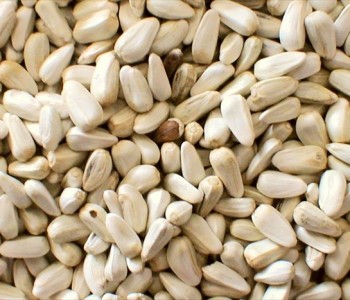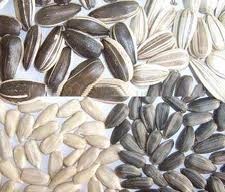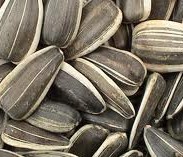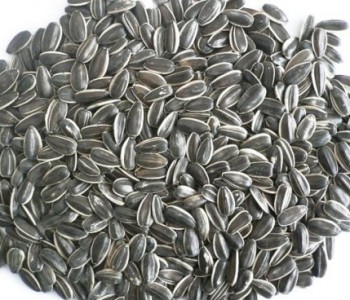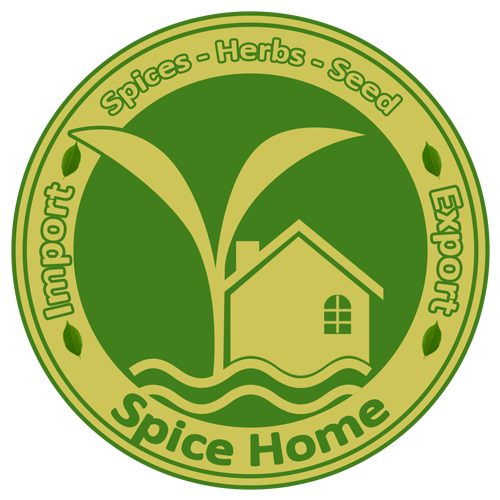
Semen hellianthi
Sunflower Seeds
| Botanical Name: | ( Sunflower ) |
| Available Form: |
|
| Season: | Available all the Year. |
| Packing: | In bage 25 - 50 KGS Net Weight. |
sunflowers seeds Benefits
sunflowers seeds Benefits
Health Benefits
Looking for a health-promoting snack? A handful of sunflower seeds will take care of your hunger, while also enhancing your health by supplying significant amounts of vitamin E, magnesium and selenium.
Anti-Inflammatory and Cardiovascular Benefits from Sunflower Seeds' Vitamin E
Sunflower seeds are an excellent source of vitamin E, the body's primary fat-soluble antioxidant. Vitamin E travels throughout the body neutralizing free radicals that would otherwise damage fat-containing structures and molecules, such as cell membranes, brain cells, and cholesterol. By protecting these cellular and molecular components, vitamin E has significant anti-inflammatory effects that result in the reduction of symptoms in asthma, osteoarthritis, and rheumatoid arthritis, conditions where free radicals and inflammation play a big role. Vitamin E has also been shown to reduce the risk of colon cancer, help decrease the severity and frequency of hot flashes in women going through menopause, and help reduce the development of diabetic complications.
In addition, vitamin E plays an important role in the prevention of cardiovascular disease. Vitamin E is one of the main antioxidants found in cholesterol particles and helps prevent free radicals from oxidizing cholesterol. Only after it has been oxidized is cholesterol able to adhere to blood vessel walls and initiate the process of atherosclerosis, which can lead to blocked arteries, heart attack, or stroke. Getting plenty of vitamin E can significantly reduce the risk of developing atherosclerosis. In fact, studies show that people who get a good amount of vitamin E are at a much lower risk of dying of a heart attack than people whose dietary intake of vitamin E is marginal or inadequate. Just a quarter-cup of sunflower seeds contains 62% of the daily value for vitamin E.
Sunflower Seeds' Phytosterols Lower Cholesterol
Phytosterols are compounds found in plants that have a chemical structure very similar to cholesterol, and when present in the diet in sufficient amounts, are believed to reduce blood levels of cholesterol, enhance the immune response and decrease risk of certain cancers.
Phytosterols beneficial effects are so dramatic that they have been extracted from soybean, corn, and pine tree oil and added to processed foods, such as "butter"-replacement spreads, which are then touted as cholesterol-lowering "foods." But why settle for an imitation "butter" when Mother Nature's nuts and seeds are a naturally rich source of phytosterols—and cardio-protective fiber, minerals and healthy fats as well?
In a study in the Journal of Agricultural and Food Chemistry, researchers published the amounts of phytosterols present in nuts and seeds commonly eaten in the United States.
Sesame seeds had the highest total phytosterol content (400-413 mg per 100 grams), and English walnuts and Brazil nuts the lowest (113 mg/100grams and 95 mg/100 grams). (100 grams is equivalent to 3.5 ounces.) Of the nuts and seeds typically consumed as snack foods, sunflower seeds and pistachios were richest in phytosterols (270-289 mg/100 g), followed by pumpkin seeds (265 mg/100 g).
Calm Your Nerves, Muscles and Blood Vessels with Sunflower Seeds' Magnesium
Sunflower seeds are a good source of magnesium. Numerous studies have demonstrated that magnesium helps reduce the severity of asthma, lower high blood pressure, and prevent migraine headaches, as well as reducing the risk of heart attack and stroke.
Magnesium is also necessary for healthy bones and energy production. About two-thirds of the magnesium in the human body is found in our bones. Some helps give bones their physical structure, while the rest is found on the surface of the bone where it is stored for the body to draw upon as needed.
Magnesium counterbalances calcium, thus helping to regulate nerve and muscle tone. In many nerve cells, magnesium serves as Nature's own calcium channel blocker, preventing calcium from rushing into the nerve cell and activating the nerve. By blocking calcium's entry, magnesium keeps our nerves (and the blood vessels and muscles they enervate) relaxed. If our diet provides us with too little magnesium, however, calcium can gain free entry, and the nerve cell can become over activated, sending too many messages and causing excessive contraction. Insufficient magnesium can thus contribute to high blood pressure, muscle spasms (including spasms of the heart muscle or the spasms of the airways symptomatic of asthma), and migraine headaches, as well as muscle cramps, tension, soreness and fatigue. A quarter cup of sunflower seeds provides 28% of the daily value for magnesium.
Improved Detoxification and Cancer Prevention from Sunflower Seeds' Selenium
Sunflower seeds are also a good source of selenium, a trace mineral that is of fundamental importance to human health. Accumulated evidence from prospective studies, intervention trials and studies on animal models of cancer has suggested a strong inverse correlation between selenium intake and cancer incidence. Selenium has been shown to induce DNA repair and synthesis in damaged cells, to inhibit the proliferation of cancer cells, and to induce their apoptosis, the self-destruct sequence the body uses to eliminate worn out or abnormal cells.
In addition, selenium is incorporated at the active site of many proteins, including glutathione peroxidase, which is particularly important for cancer protection. One of the body's most powerful antioxidant enzymes, glutathione peroxidase is used in the liver to detoxify a wide range of potentially harmful molecules. When levels of glutathione peroxidase are too low, these toxic molecules are not disarmed and wreak havoc on any cells with which they come in contact, damaging their cellular DNA and promoting the development of cancer cells. Its selenium richness is another reason that sunflower seeds can make a good snack—one quarter cup will provide you with 27% of the daily value for selenium.
Description
Sunflower seeds are the gift of the beautiful sunflower, a plant with rays of petals emanating from its bright yellow, seed-studded center. The sunflower's Latin scientific name, Helianthus annuus, reflects its solar appearance since helios is the Greek word for sun, and anthos is the Greek word for flower.
The sunflower produces grayish-green or black seeds encased in tear-dropped shaped gray or black shells that oftentimes feature black and white stripes. Since these seeds have very high oil content, they are one of the main sources used to produce polyunsaturated oil. Shelled sunflower seeds have a mild nutty taste and firm, but tender texture. Their taste is oftentimes compared with the Jerusalem artichoke (not to be confused with the bulb artichoke), another member of theHelianthus family.

